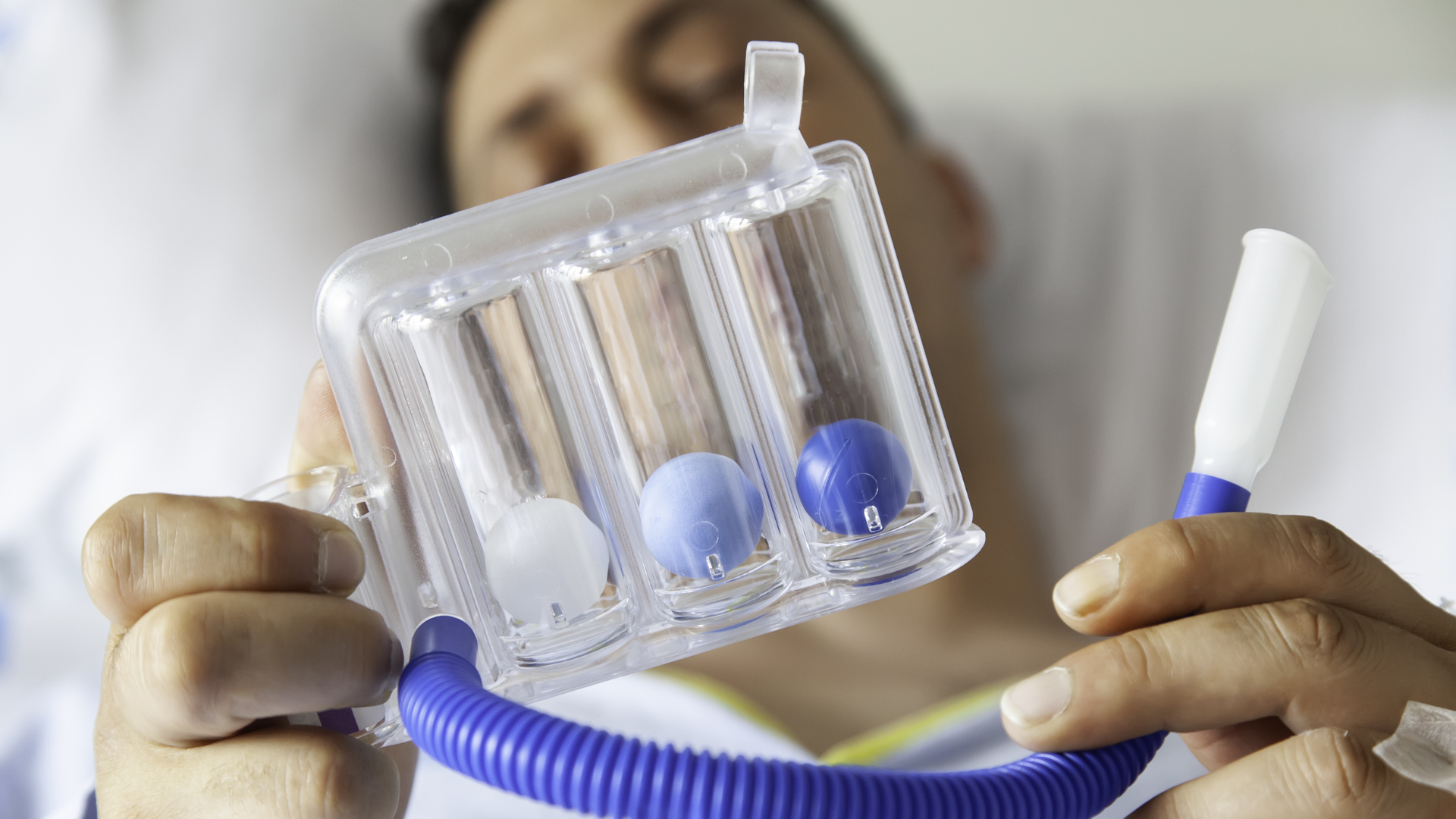From CRT to RRT: Take Your Respiratory Therapy Career to New Heights

Every respiratory therapist starts their journey with the aspiration to make a difference in patients' lives. Still, it's easy to become complacent or hesitant to pursue higher goals along the way.
In this article, we'll explore the pivotal reasons why making the leap from a certified respiratory therapist (CRT) to a registered respiratory therapist (RRT) isn't just a professional choice but a life-changing decision that can breathe new life into your passion for respiratory care.
Overcoming Common RRT Certification Hurdles
If you've hesitated to pursue your RRT certification due to certain hurdles, it's time to address these challenges head-on. Here are some common reasons that might be holding you back and practical ways to conquer them:
Cost: Furthering your education costs money—such as course and examination fees, books, and babysitting charges. However, the benefits of getting RRT credentials outweigh the short-term financial burden.
Study Habits: You may feel intimidated to hit the books again after a hiatus from school. Brush up your study skills by reviewing your notes and textbooks or looking up research articles on respiratory issues.
Lack of Time: If you're genuinely busy with family activities–why not discuss your professional goals with your family and work out a plan to study in the evenings or on weekends?
Fear of Change: Learn to embrace change as an opportunity for personal and professional growth.

3 Advantages of an RRT Credential
Transitioning from a CRT to an RRT may feel like moving from a calm, steady stream into the powerful currents of a roaring river. While both credentials are rewarding, the earning potential and career opportunities paint a vivid picture of their differences. So, instead of holding yourself back, why not propel yourself to even greater horizons? Here are three advantages of having an RRT credential:
1. Higher Earning Potential
Think of a CRT salary as a dependable stream, with an average annual income of $70,051 gently flowing along, occasionally reaching $76,642 during peak periods. It's reliable and consistent, like a tranquil river providing for your needs but not letting you venture into the unknown.
On the other hand, the average annual income for an RRT is $75,361, akin to diving headfirst into the swirling rapids of a mighty river. While it demands more skill and expertise, it also promises higher rewards, surging as high as $87,901.
2. More Job Opportunities
An RRT career is an exhilarating adventure where you navigate challenges and emerge with a bountiful reward at the journey's end. As a CRT, you limit yourself by avoiding the thrill of the wild river. And while some states allow you to work as a CRT, many are looking to move to the RRT credential for entry level into the profession.
3. Better Career Advancement
CRTs and RRTs are encouraged to obtain specialized credentials to make themselves more valuable to their employers. There are tributaries of specialized options for CRTs. You can choose to become a certified pulmonary function technologist (CPFT), a sleep disorder specialist (CRT-SDS), or an asthma educator (AE-C).
With RRT credentials, your career takes on a newfound vigor, allowing you to traverse the tributaries and the thrilling rapids of critical care. As an RRT, you can boldly venture into critical care areas, becoming an adult critical care specialist (RRT-ACCS) or a neonatal/pediatric specialist (RRT-NPS).

Becoming a Registered Respiratory Therapist
The steps to becoming an RRT depend on where you are in your career path—all of which converge at the Therapist Multiple-Choice (TMC) exam.
This comprehensive exam, administered by The National Board of Respiratory Care (NBRC), tests your knowledge and skills in respiratory care and is a prerequisite for taking the Clinical Simulation exam (CSE). To achieve RRT certification, you must receive a high-cut score on the TMC and pass the CSE.
Recent graduates with an associate degree have different RRT eligibility requirements for writing the exam than someone who became a CRT before needing an associate degree or someone who has worked for several years as a CRT and wants to upgrade.
The requirements for taking the TMC and CSE are available on the NBRC resource page under TMC exam FAQs and CSE FAQs. It's essential to check the website yourself to determine your eligibility requirements, but here's a quick summary:
You must be 18 years of age to write the TMC.
Graduating students with an associate degree can write the TMC and take the CSE if they receive a high-cut score.
CRTs receiving their certification before needing a degree can take the TMC after working four years and taking additional education. If they pass the TMC with a high-cut score, they can take the CSE.
CRTs with a low-cut score and several years of CRT work experience can apply their degree and work hours toward their eligibility to take the TMC and CSE.
Founded in 1960, the NBRC establishes competencies and standards for respiratory care in the United States. It offers exams and credentials for CRTs, RRTs, and the specialization categories. The RRT credential is recognized nationwide for its benchmark of excellent practice.
4 Tips to Enhance Your Path to RRT Certification
Seize your journey towards RRT career advancement with these four strategies:
1. Unearth Valuable Resources: Dive into the treasure trove of knowledge by exploring the TMC Exam FAQs and CSE FAQs. These resources lead you to the NBRC practice exams.
2. Broaden Your Horizons: Seek out additional practice exams beyond the norm. Consider exploring platforms like Kettering, which offers a wealth of practice materials to sharpen your skills.
3. Master Your Time: Craft a meticulous study schedule two months before your exam date. This structured approach ensures you steadily build your knowledge base, leading to a more comprehensive understanding of the material.
4. The Experience Advantage: Some aspiring CRTs leap into the CSE without prior work experience, while others find wisdom in gaining practical job exposure. Embrace this diverse journey, as hands-on experience can be the crucible for refining your critical thinking abilities.
CRT to RRT Conclusion
Are you convinced of the benefits of having an RRT credential? You'll benefit from higher wages, better job opportunities, and career advancement. Given these advantages, there's no better time than now to commit to pursuing your TMC and taking the CSE.
The journey may be challenging, but the rewards are immeasurable. Remember, success in respiratory therapy isn't just about providing quality care to patients; it's about securing a brighter future for yourself.